 (The affiliations and positions listed in this interview are at the time of publication of the
interview in 2017.)
(The affiliations and positions listed in this interview are at the time of publication of the
interview in 2017.)
STAKEHOLDER INTERVIEWSPerspectives from 15 global health leaders on GHIT's catalytic role and
Japan's transformational contributions to global health R&D

FUNDING
01
Dr. Naoko Yamamoto
Senior Assistant Minister for Global Health,
Ministry of Health, Labour and Welfare
“Indeed, Japan, which has experienced numerous health challenges, should proactively contribute to global health and play a leading role in this arena.”
Assistant Minister Yamamoto, you have been involved in policy making in the field of global health (including countermeasures against AIDS) for quite a long time in the Ministry of Health, Labour and Welfare and Japan's delegation to the UN. Please tell us about how you first came to be involved in this field.
I do not have a wealth of experience in the field of global health by any means. I first became in charge of HIV/AIDS in 1992 immediately after returning to the (former) Ministry of Health and Welfare from studying abroad in the U.S. After that, I handled the preparations and management for the 10th International AIDS Conference held in Yokohama, 1994, which was the first in Asia. At that time, I remember that therapeutics for HIV/AIDS were limited and that there was also strong discrimination and prejudice against people living with HIV. In that kind of environment, and in cooperation with healthcare professionals and researchers, NGOs, and patient groups around the world, I truly felt the power of solidarity as we tackled regional challenges with a global viewpoint. These challenges included developing theapeutics and guaranteeing equal access; education for prevention; protecting the human rights of patients, those are living with HIV/AIDS, and sexual minorities; and providing support for children orphaned by AIDS.
I was reunited with these friends ten years later, when I was serving in the UN delegation in New York. Even now, these friends still help me with various situations. And today, I oversee global health in my position as Assistant Minister for Global Health and Health Industry Strategy, Minister's Secretariat, Ministry of Health, Labour and Welfare.
What kinds of duties and assignments do you lead in your current position as Assistant Minister?
As I mentioned, as Assistant Minister for Global Health and Health Industry Strategy, I serve on the Boards of the Joint United Nations Programme on HIV and AIDS (UNAIDS) and the Global Fund. I also attended the G7 Ise-Shima Summit which Japan hosted in 2016, as well as the United Nations General Assembly. Through consultations with government officials and experts from around the world, Japan is communicating its policy, leading global health discussions internationally, and bringing countries with differing opinions together, in order to solve the various challenges facing the global health field.
I also handle the mission of deploying Japan's medical technology throughout the world by means of cooperative bilateral frameworks with various countries. For example, I helped coordinate the conclusion of a Memorandum of Cooperation in the field of medical care and health with the Ministry of Health of the Russian Federation in December 2016.


The GHIT Fund is Japan's first initiative specializing in global health R&D. GHIT's main role is to invest in the development of products for infectious diseases prevalent in developing countries. As you know, such infectious diseases and tropical diseases are not much of a problem in Japan; what was the Ministry of Health, Labour and Welfare's rationale for contributing funds to GHIT? Why is investing in Global Health R&D important for Japan?
Japan's pharmaceutical industry possesses technology and capabilities for developing new drugs on the same level as the U.S. and EU. Therefore, we have great expectations for this industry as one which will be important for Japan's economic growth. We see improving the environment for drug discovery and development as directly related to strengthening our international competitiveness.
In the field of global health, on the other hand, the research and development (R&D) for Neglected Tropical Diseases (NTDs), tuberculosis, and malaria which are mainly prevalent in developing countries, is not being sufficiently done due to a lack of demand in developed countries. Even when medical products have been developed, the disparity in access to those tools has been a challenge.
Therefore, by leveraging Japan's excellent R&D technologies and capabilities and promoting public-private partnerships to develop drugs meant for developing countries as well as supporting their supply, we aim to grow and expand Japan's pharmaceutical industry. The return we see is revitalization of the domestic economy through providing the underlying support for expanding Japan's pharmaceutical industry overseas. This is why we invested in GHIT.
Furthermore, health is essential to people's fundamental happiness and a foundation of prosperous countries. Indeed, Japan, which has experienced numerous health challenges, should proactively contribute to global health and play a leading role in this arena.
“I also feel that we have fostered a trust between the public and private sectors in the process.”
Almost four years have passed since the GHIT Fund was founded. How do you view the performance and progress of the GHIT Fund up to this point—personally, and in your capacity as a funder?
Speaking from a GHIT funder's perspective, the GHIT public-private partnership framework, was a new one for us. However, if I look back on over the past four years, we have been steadily securing funding through the hard work of the people involved. And now, many projects have been invested in, and domestic and international companies and research organizations have been involved in product development.
Although it takes time to develop medical products, GHIT properly conducts follow-up or monitoring and evaluation of invested projects. Within these invested projects, there are several products which we expect could be delivered to patients within a few years. Therefore, I highly value the steady progress of GHIT so far. I also feel that we have fostered a trust between the public and private sectors in the process.
Our experience with GHIT has catalyzed our engagement in other new kinds of partnerships. For example, CEPI (Coalition for Epidemic Preparedness Innovations), which aims to develop vaccines for emerging infectious diseases likely to cause severe outbreak in the near future, including Ebola hemorrhagic fever, was officially inaugurated in January, 2017. We (the Ministry) contributed funding and become a founding member. I think that GHIT's performance and success encouraged Japan to become actively involved in CEPI.
As for future challenges for GHIT, it is true that the decision-making process (evaluation and selection of each investment), and discussions in the Council and Board can all seem rather opaque from the outside. So, I think there is a need to ensure even more transparency. And although this is also our challenge, we would like to work together with GHIT to increase awareness of its great work and activities.
“Based on these successful experiences, I am hoping that many companies and research organizations in Japan become motivated to help address the challenges of global health, and this will lead to further advancing Japan's global health R&D.”
What kind of impact do you think the GHIT's establishment has had on Japan's global health R&D sector?
There are two distinctive features of GHIT to point out here. First, the collaboration between Japan and overseas organizations is a prerequisite when conducting R&D. Second, GHIT targets NTDs, which are still a global health challenge, despite the fact that they are not prevalent in Japan. Such a partnership approach and substantive focus make GHIT's funding scheme completely different from other funding schemes for R&D in Japan. By leveraging this new platform, I think we have been able to demonstrate at home and abroad that Japanese pharmaceutical companies, research organizations, and universities possess technologies and capabilities which can not only contribute to the nation's health, but to global health as well.
Based on these successful experiences, I am hoping that many companies and research organizations in Japan become motivated to help address the challenges of global health, and this will lead to further advancing Japan's global health R&D.
Looking five to ten years from now, what kind of approach do you feel is needed from Japan in order to make innovative new drug developments in global health?
The development of medical products requires a high-level expertise and a deep well of wisdom and dialogue. Therefore, although corporate efforts are obviously needed for Japan to continually develop new innovative products in the future, many experts, NGOs, and stakeholders also need to get involved. And in the development of new medical products for infectious diseases, which is not driven by traditional market incentives, we need policies and environmental improvements such as so-called ‘Push and Pull' mechanisms. I also think it is important to get the general public understand this point so that we can invest taxes into developing new medical products.
Additionally, it is important for Japan to proactively engage in developing globally harmonized standards so that evidence-based evaluation for innovative products can be done consistently by the pharmaceutical regulatory authorities in each country. Furthermore, it is critical to take advantage of Japan's experience and support the establishment of health systems in low- and middle-income countries so that innovative drugs can be utilized more effectively in those countries.
I think that environmental improvements—not just for R&D but also for the whole process, from regulatory approval to delivery and usage—are important to ensuring products reach the market smoothly.
By further expanding the results up to this point, and taking Japan's pharmaceutical technology and capabilities from the bench to clinical settings where patients are suffering from infectious diseases.
Over the next five years, what kinds of roles will GHIT need to play in order to promote innovation in Japan?
GHIT's pipeline currently has several drug and vaccine candidates in late-stage clinical trials. Over the next five years, we need to deliver these products as tangible results to people suffering from NTDs, tuberculosis, and malaria. In order to do so, we can utilize existing systems such as the Japanese orphan drugs/ medical devices designation system and clinical trial consultations offered by the Pharmaceuticals and Medical Devices Agency (PMDA), which is Japan's regulatory authority, for more efficient and swift clinical development. At the same time, we need to work even more closely with the United Nations Development Program's “Access and Delivery Partnership”, which Japan contributes to along with GHIT. Additionally, capacity building and system strengthening must be done in low- and middle-income countries to improve delivery on the ground.
I believe that we can continue to build trust between GHIT and stakeholders and advance Japan's innovation through accumulating concrete results step by step. For example, by further expanding the results up to this point, and taking Japan's pharmaceutical technology and capabilities from the bench to clinical settings where patients are suffering from infectious diseases.
The affiliations and positions listed in this interview are at the time of publication of the interview in 2017.

- Biography
- Naoko Yamamoto, MD, MPH, PhD
Senior Assistant Minister for Global Health, Ministry of Health, Labour and Welfare
Prior to her current position, Dr. Yamamoto was Director-General of Hokkaido Regional Bureau of Health and Welfare (2014) and Director General at National Center for Child Health and Development (2013). From 2011 to 2013, she served as Director of Specific Disease Control Division, Health Service Bureau at Ministry of Health, Labour and Welfare. Before 2011, she worked as Director, Health and Medical Division, Bureau of Personnel and Education at Ministry of Defense of Japan. Dr. Yamamoto graduated from Sapporo Medical University (1985).
STAKEHOLDER INTERVIEWSARCHIVES
FUNDING
-
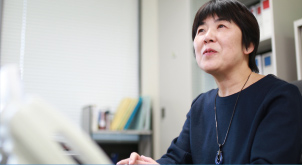
-
01
Dr. Naoko YamamotoSenior Assistant Minister for Global Health,
Ministry of Health, Labour and Welfare
#
-

-
02
Dr. Hannah KettlerSenior Program Officer, Life Science Partnerships
Global Health Program, Office of the President
Bill & Melinda Gates Foundation
#
-

-
03
Prof. Stephen CaddickDirector, Innovations Division,
Wellcome Trust
#
DISCOVERY
-

-
01
Dr. David ReddyCEO
Medicines for Malaria Venture (MMV)
#
-
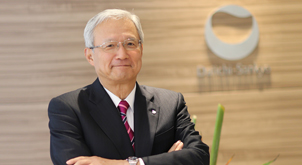
-
02
Mr. George NakayamaRepresentative Director,
Chairman and CEO
Daiichi Sankyo Company, Limited
#
-
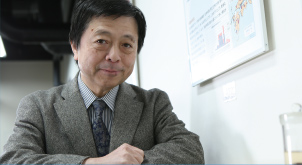
-
03
Prof. Kiyoshi KitaProfessor Emeritus, The University of Tokyo
Professor and Dean, Nagasaki University School of Tropical Medicine and Global Health
#
DEVELOPMENT
-

-
01
Mr. Christophe WeberRepresentative Director, President and CEO
Takeda Pharmaceutical Company Limited
#
-
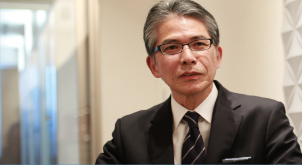
-
02
Mr. Yoshihiko HatanakaRepresentative Director,
President and CEO
Astellas Pharma Inc.
#
-

-
03
Dr. Nathalie Strub WourgaftMedical Director
Drugs for Neglected Diseases initiative (DNDi)
#
ACCESS
-

-
01
Dr. Jayasree K. IyerExecutive Director
Access to Medicine Foundation
#
-
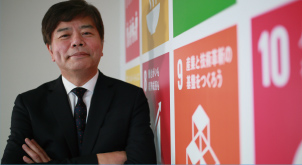
-
02
Mr. Tetsuo KondoDirector
United Nations Development Programme (UNDP)
Representation Office in Tokyo
#
-
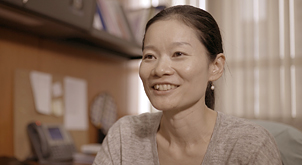
-
03
Dr. Aya YajimaTechnical Officer
Malaria, other Vectorborne and Parasitic Diseases Unit
Division of Communicable Diseases
World Health Organization Western Pacific Regional Office
#
POLICY
-

-
01
Dr. Mark DybulFormer Executive Director
The Global Fund to Fight AIDS,
Tuberculosis and Malaria
#
-

-
02
Dr. Seth BerkleyCEO
Gavi, the Vaccine Alliance
#
-
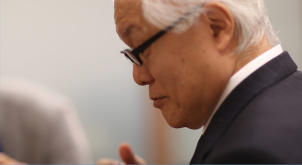
-
03
Hon. Prof. Keizo TakemiMember of the House of Councillors of Japan
Chairman, Special Committee on Global Health Strategy
of the Liberal Democratic Party's Policy
#